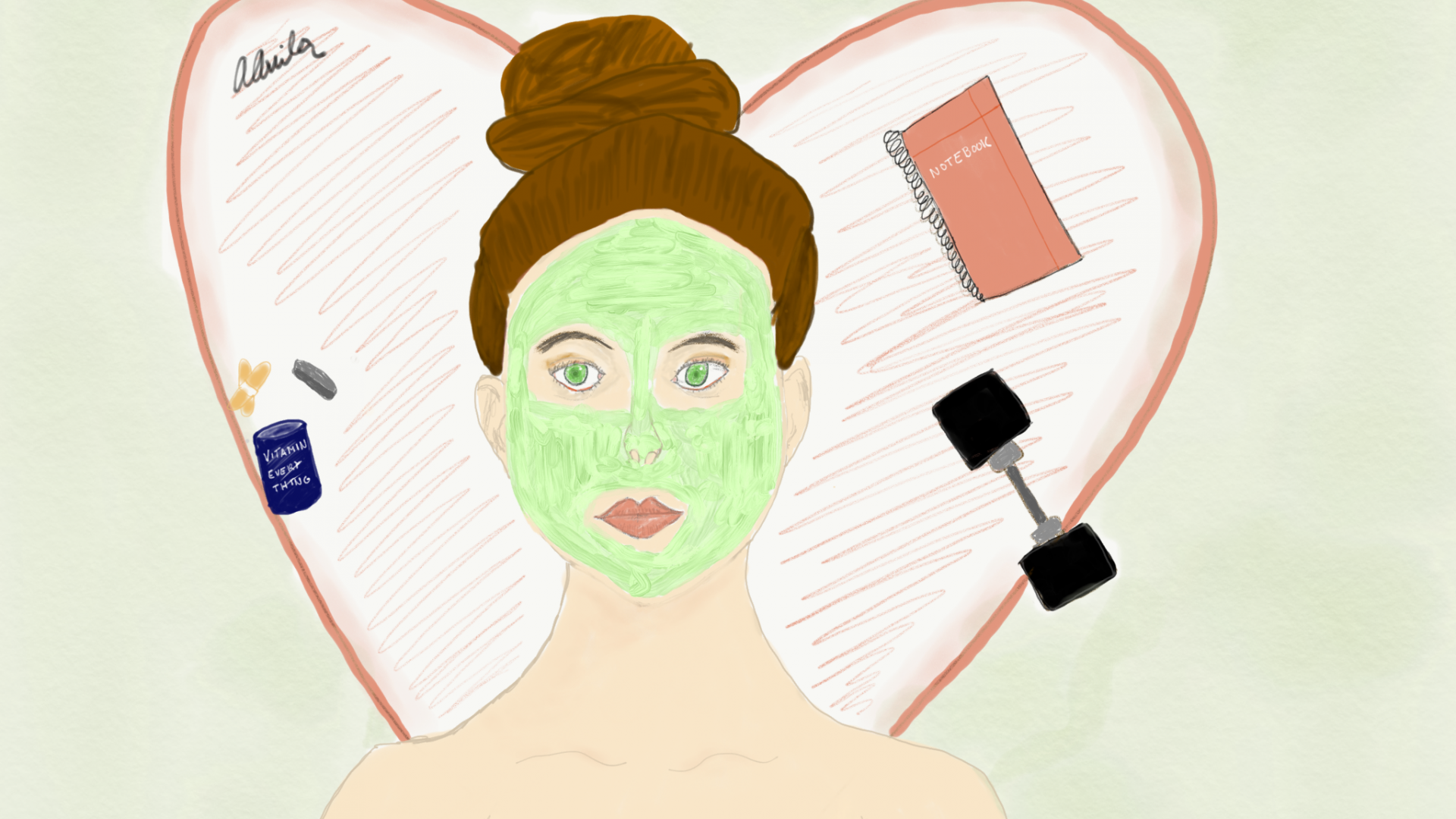It was in my first year of university that I decided to put my foot down and really focus on myself. And that is when I found self-care. I was introduced to the world of facemasks, colouring books, pretty journals, vitamin supplements, and many other material ‘essentials’ in support of self care. Wear a face mask, take some vitamins, write in a journal, was this all I had to do to support my own well-being?
Oh, if only First Year me knew. It should have been common sense for me to know that these materialistic approaches did not equate to a full investment of my health. Yet, all the posts on my social media feed regarding self-care all seemed to pertain to this idea that we need to have all of these things to invest time in ourselves. Don’t get me wrong either, I love a good face mask and I journal almost every day. But this focus on needing products to take care of ourselves overshadows what self-care actually means. Moreover, the emphasize on material things can mislead people to think that investing in their own well-being is something they have to buy.
We all know that exercise is important for our overall health. Yet we tend to focus on the trendy outfits, the “right” gear, the perfect workout picture for social media when taking a brisk walk outside could’ve equally served our health. While research shows that people who follow fitness content on social media have gained motivation to exercise some of those studies also reveal an adverse effect in self-esteem and an increased focus in body image for other participants.[1][2] There were definitely times that I certainly felt myself comparing my fitness results with others while scrolling through exercise inspiration on social media.
In a world of mass-consumerism, it is no surprise that I have missed the meaning of self-care in all the glamour of smart marketing and social media exposure. It took me some time to really discover what self-care was.
One day I journaled for real - giving no regard to how unpretty my pens were, the quality of my spreads, my cheap highlighters. I had finally used the thing I bought for its purpose – to write. I wrote about what was going on in my life, what I was feeling, what I was going to do, what I wasn’t going to do. When I continued doing that for many months, I began to understand what self-care really was.
Self-care, for me, was checking in with myself. Self-care was recognizing my emotions, negative or positive. Self-care was an opportunity for self-growth. These aspects of my own self-care are what I tend to focus on in the pursuit of self-growth.
“I think students should know that it is sometimes OK to fail at self-care… What's important is self-awareness, monitoring and knowing our boundaries — when it is OK to slip in either direction or when it may undermine our competence”[3]
Self-care, I realized, was little to do with money and everything to do with what I wanted for myself and my life.
[1] Tricia J. Burke & Stephen A. Rains (2019) The Paradoxical Outcomes of Observing Others’ Exercise Behavior on Social Network Sites: Friends’ Exercise Posts, Exercise Attitudes, and Weight Concern, Health Communication, 34:4, 475-483, DOI: 10.1080/10410236.2018.1428404
[2] Divine, Alison, Paula M. Watson, Sophie Baker, and Craig R. Hall. “Facebook, Relatedness and Exercise Motivation in University Students: A Mixed Methods Investigation.” Computers in Human Behavior 91 (2019): 138–50. https://doi.org/10.1016/j.chb.2018.09.037.
[3] Doran, Jennifer. “The Unspoken Truth about Self-Care.” GradPSYCH Magazine, April 2014.

0 comments on “Bath Bombs and Face Masks: A Self-care Deception”